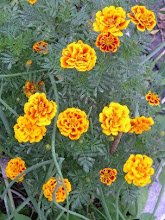As anyone even vaguely familiar with news about global warming knows, the polar ice caps and Greenland's glaciers are melting. this cold water flowing into the northern Atlantic could shut down the Gulf Stream and the worst-case scenario for the results of this would be a "full-blown return of the last ice age -- in a period of as little as 2 to 3 years from its onset -- and the mid-case scenario would be a period like the 'little ice age' of a few centuries ago that disrupted worldwide weather patterns leading to extremely harsh winters, droughts, worldwide desertification, crop failures, and wars around the world." (Hartmann)
Recently developed advances in drilling and sensing equipment have enabled scientists to analyze ice core samples from the most ancient accessible glaciers. through this analysis they have discovered that the transitions in time from ice age-like weather to contemporary-type weather were brief and rapid. scientists aren't sure what caused the tripping of the cycles between ice age and temperate weather in the remote past, but "the data from the Arctic ice and other sources suggest the atmospheric changes that preceded earlier collapses were dismayingly similar to today's global warming." (Fortune magazine article) the earlier changes were caused by unknown natural effects, but the one looming before us today undoubtedly has more to do with human activity, principally the burning of fossil fuel.
here is Hartmann's description of how this happened in previous cycles, the possibility that likely faces us, sooner rather than later: "The spring would come late, and summer would never seem to really arrive, with the winter snows appearing as early as September. The next winter would be brutally cold, and the next spring didn't happen at all, with above-freezing temperatures only being reached for a few days during August and the snow never completely melting. After that, the summer never returned: for 1500 years the snow simply accumulated and accumulated, deeper and deeper, as the continent came to be covered with glaciers and humans either fled or died out."
(Part 3 continues)

No comments:
Post a Comment